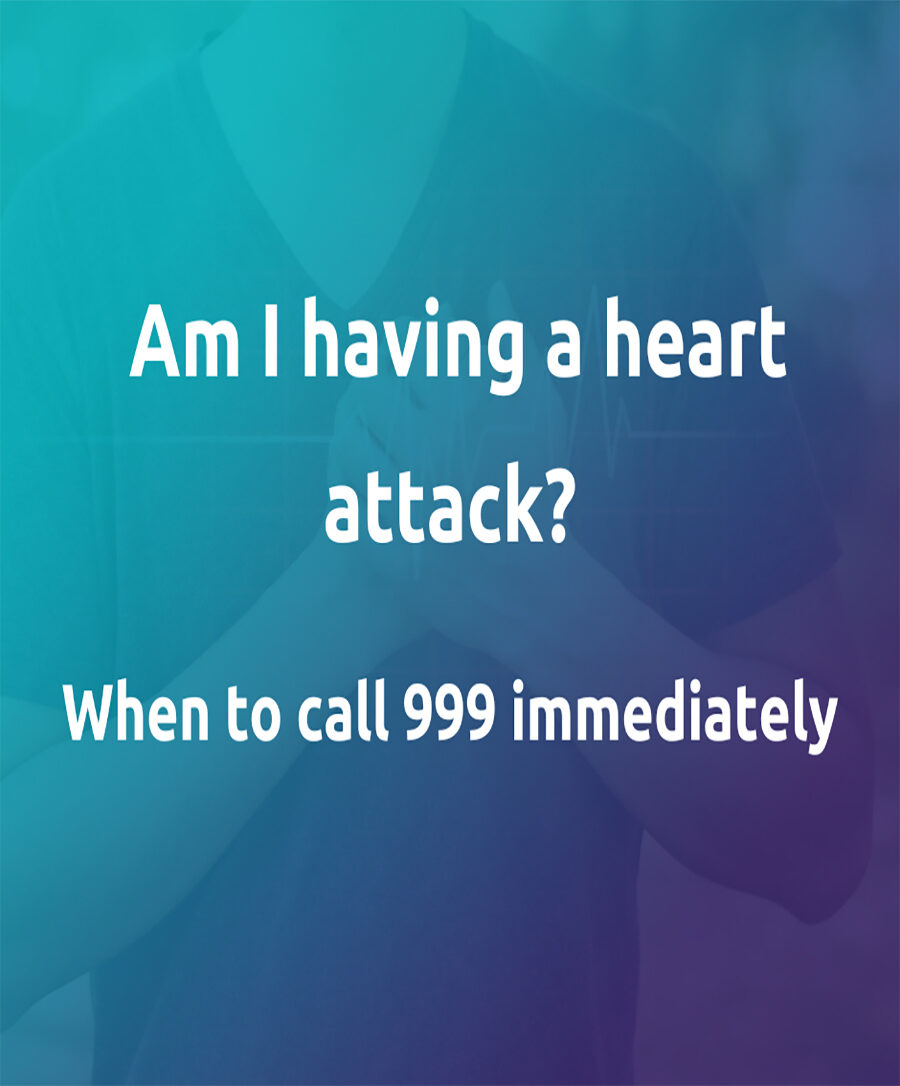There are over 100,000 hospital admissions due to heart attacks each year in the UK. This is a common affliction in an ageing population with shifting lifestyles, and many are at risk. If you’re ever in the situation where you think, “am I having a heart attack?” or if you’re clearly suffering from the symptoms of a heart attack, don’t hesitate to contact the emergency services right away.
Am I having a heart attack? When to call 999 immediately
Call 999 immediately if you think you or someone in your proximity might be having a heart attack. Acting fast can drastically increase their chances of making a recovery.
Seek emergency assistance if you experience the following symptoms:
- Chest pain – feeling a tightness, heaviness or squeezing across your chest
- Discomforts in other parts of your body, like spreading to your arms, jaw, neck, back and stomach
- Shortness of breath
- Sweating
- dizziness
- Overwhelming anxiety, similar to a panic attack
- Coughing or wheezing
- Feeling or being sick
While chest pain is often severe, some people only experience minor pain similar to indigestion. Women’s symptoms also differ slightly as they are more likely to feel shortness of breath, sickness, or back or jaw pain.
Am I at risk of a heart attack?
Several risk factors make it more likely for people to experience a heart attack. However, some of these risks can be alleviated with a change in lifestyle, exercise and diet.
The following conditions put you more at risk:
- Men over the age of 45 or women over the age of 55
- Smokers, or those exposed long-term to secondhand smoke. Quitting smoking is one of the best ways to ensure you are less at risk of a heart attack.
- High blood pressure
- High cholesterol
- Obesity: Obesity is linked with high blood pressure and diabetes and often features high harmful cholesterol levels.
- Diabetes: An increase in blood sugar can increase the risk of a heart attack.
- Family history of heart attacks, especially if your relative had a heart attack early (before the age of 55 for men and 65 for women)
- Lacking exercise. A Sedentary lifestyle is linked to a higher risk of heart attacks.
- Unhealthy diets. Diets high in sugar, animal fats, processed foods, and salt increase the risk.
- Illegal drug use, especially stimulants such as cocaine and amphetamines, can trigger a coronary artery spasm.
- Autoimmune conditions such as rheumatoid arthritis or lupus
If you’re worried you’re in a high-risk category for heart attacks or are experiencing some of the above symptoms regularly without suffering an attack, see a cardiologist to discuss your health.
At Venturi Cardiology, we’ll be able to run diagnostic tests to determine your heart health. We’ll be able to establish a plan to avoid triggers and risks in the future and improve your general health.
Contact us to make an appointment today.












